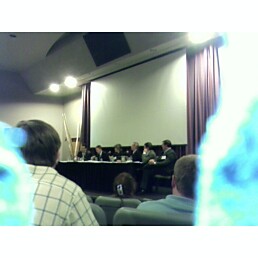Save the Internet is a well meaning web organization intended to create a level playing field for all sites on the Internet. Too bad that its efforts are misguided by spreading fear, uncertainty, and doubt (FUD). They state that the access providers want to increase charges for access to Google, Yahoo! and other content providers and restrict free speech. They want the government to regulate the Internet by forcing Internet access providers to treat all traffic equally. In principle this effort sounds great, but in practice they will actually achieve the opposite amounting to a win for AT&T, Verizon, Comcast, and other incumbent Internet access providers.
First of all, the government has not proven to be an effective regulator of anything. Name one thing that they have efficiently managed. Congress, the Executive and Judicial branches barely even know what the Internet is all about. So how can we expect them to properly regulate what they don't understand?
Second, the Net Neutrality legislation currently proposed will actually set up the same walled garden that it is trying to prevent. The legislation will force all packets for Internet access to be treated equally. That means that AT&T's VoIP service receives the same priority as Vonage's VoIP service. So far so good, but it also means that those packets are the same as a Bittorrent transfer. Not so good for any provider of time sensitive traffic whether AT&T, Google, or Vonage.
AT&T can easily avoid having their time sensitive VoIP packets delayed by not running them over their high-speed Internet service. They can use bandwidth outside the service just as they do their video traffic. By not running their VoIP traffic over their Internet access, they can offer a better quality experience than Vonage or other VoBB providers. Vonage and other competing content effectively are now in the slow lane while AT&T and the other access providers have a fast lane. Isn't this what Net Neutrality was trying to prevent?
Why do you think that AT&T was so quick to agree to the provision in their merger with BellSouth? They know that the rule will now legally allow them to give preference to their own services. So goes the law of unintended consequences. So well meaning organizations like the EFF and Save the Internet are actually hurting equal access instead of helping it. The Internet needs a hands-off approach with more competition for access which will ensure Net Neutrality better than the FCC ever could.
Source: Save the Internet : Fighting for Internet Freedom
